

The current El Nino — an occasional natural warming of parts of the Pacific that changes weather around the world and spikes global temperatures — is tied with 1997-1998 for the strongest on record, according to NOAA.
And while it has been predicted to ease soon, it has not lessened yet, said NOAA Climate Prediction Center deputy director Mike Halpert.
Nasa chief climate scientist Gavin Schmidt blamed the record heat mostly on man-made climate change, with an assist from El Nino.
The news comes just a month after Nasa declared 2015 the hottest year on record.
The Japan's Meteorological Agency has backed up the latest latest claim, after reporting that January's global land and sea-surface temperatures were 0.52 degrees above the average.
Temperatures in January are rising at the rate of about 0.75 degrees per century, the agency added.
El Niño is believed to have hit a peak in January, which contributed to the record-breaking temperatures.
This image shows a map worldwide temperatures for the month of January, 2016. Earth's string of hottest months on record extends to nine straight with last month notching the hottest January
Global land temperatures have been increasingly steadily since 1880. While El Nino has created a spike in temperatures, it is only one reason why temperatures are heating up. The black line in the graph above shows the annual mean temperature anomaly. The red line showing the five-year running mean
But as Thomas R. Karl, director of NOAA's National Centers for Environmental Information, said last year: 'The trend over time is why we're having a record warm year.'
Discover Magazine points out that global land temperatures have been increasingly steadily since 1880.
Meanwhile, warm temperatures in the Arctic during January have been linked to a different phenomenon known as the Arctic Oscillation.
This involves differences in air pressure over the Arctic and lower latitudes.
 |  |
Day|Week

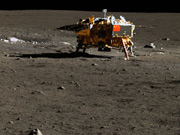 China releases HD true color images of lunar surface
China releases HD true color images of lunar surface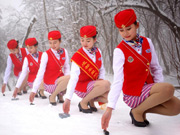 To-be flight attendants undergo training at snow-covered field
To-be flight attendants undergo training at snow-covered field Aerial photos taken on J-11 fighter
Aerial photos taken on J-11 fighter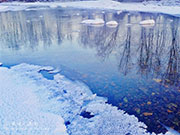 'Coldest town in China' — a fairyland you don't want to miss
'Coldest town in China' — a fairyland you don't want to miss Deep love for breathtaking Hainan
Deep love for breathtaking Hainan Beautiful Chinese tennis player Wang Qiang goes viral online
Beautiful Chinese tennis player Wang Qiang goes viral online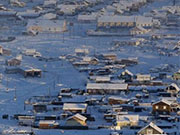 Minus 71 degrees! Coldest village on earth
Minus 71 degrees! Coldest village on earth Chinese pole dancing master opens class in Tianjin
Chinese pole dancing master opens class in Tianjin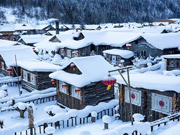 The most beautiful town of snow in China
The most beautiful town of snow in China SWAT members hold romantic wedding in E China
SWAT members hold romantic wedding in E China